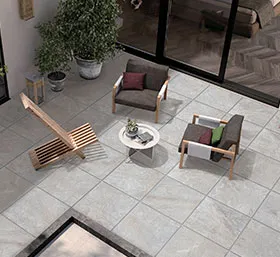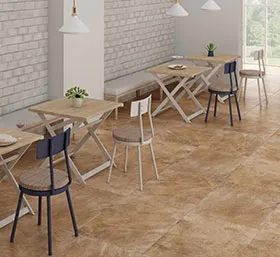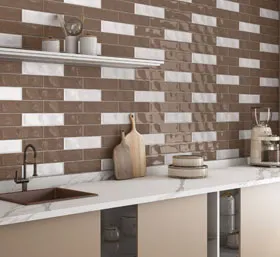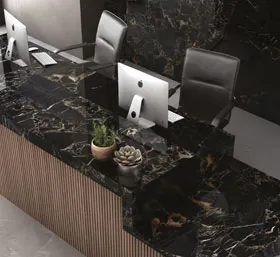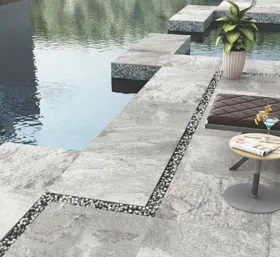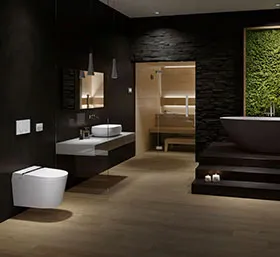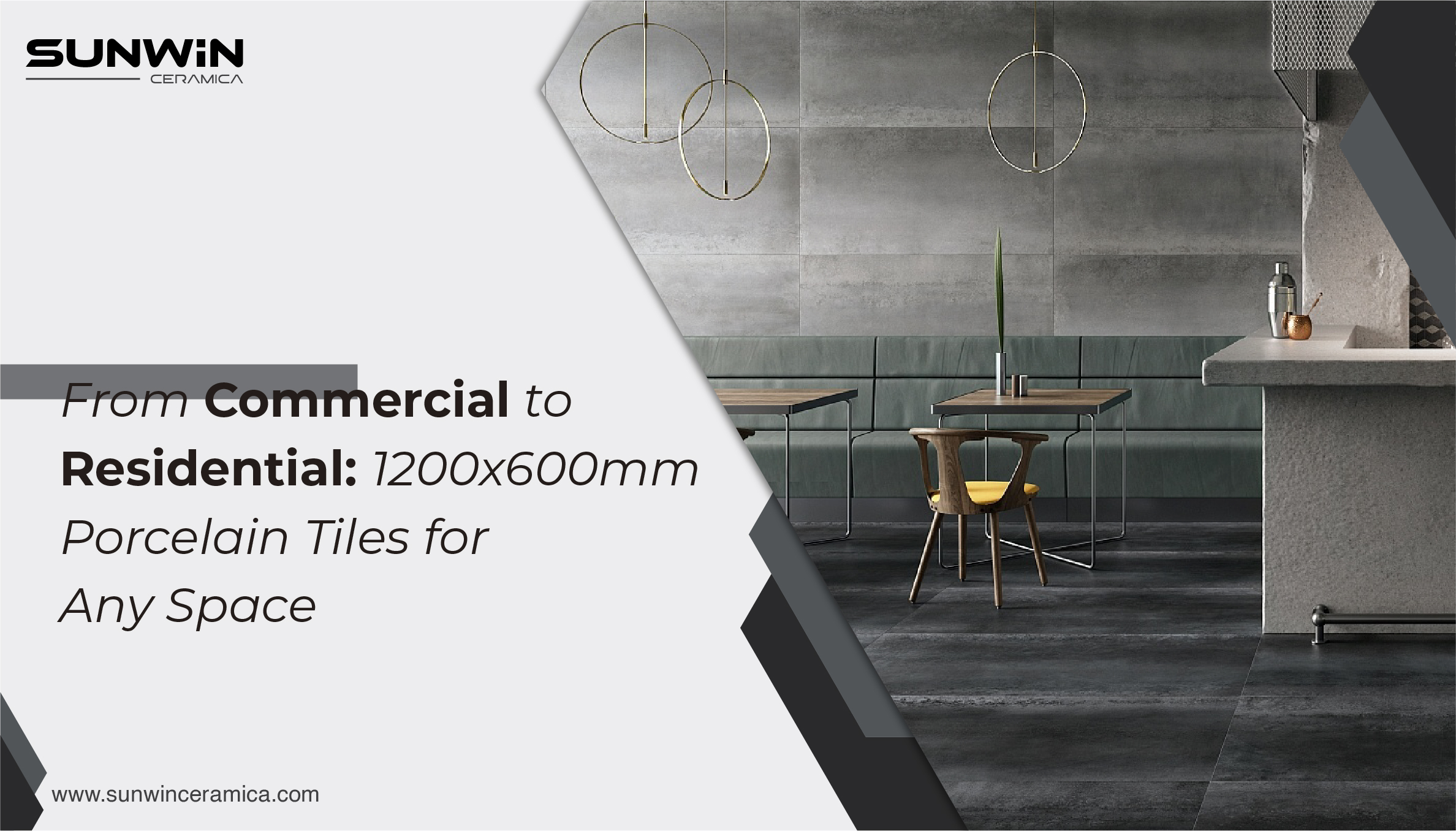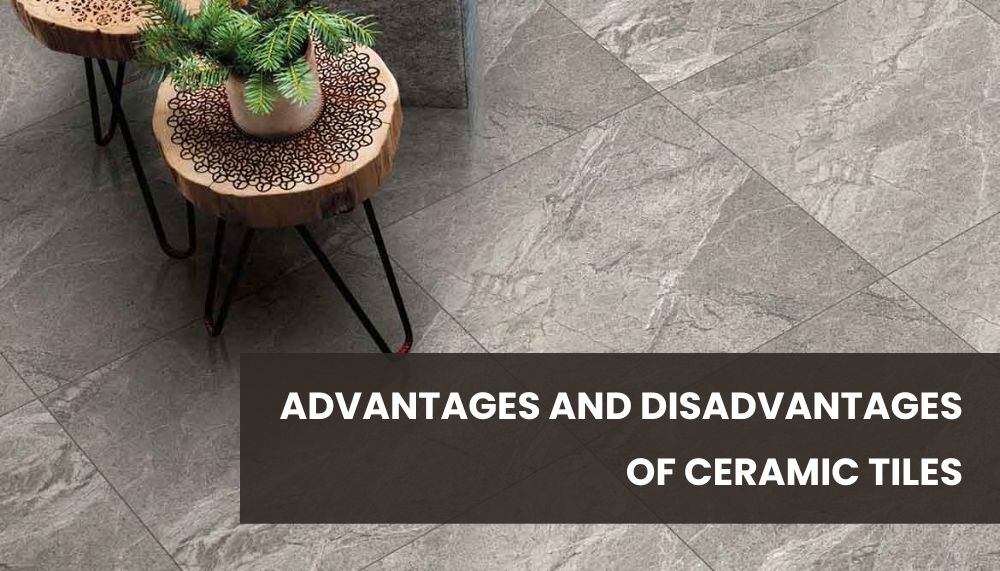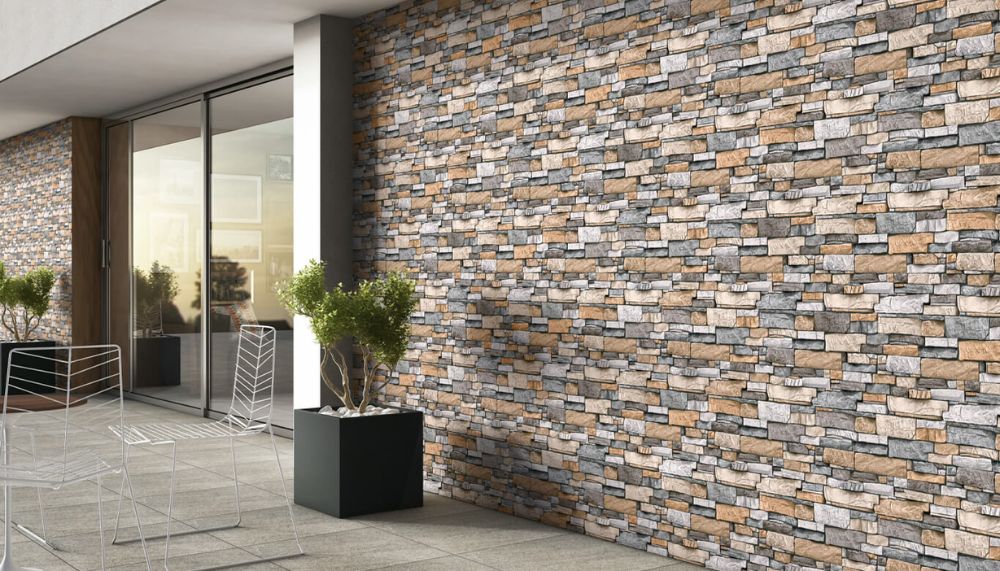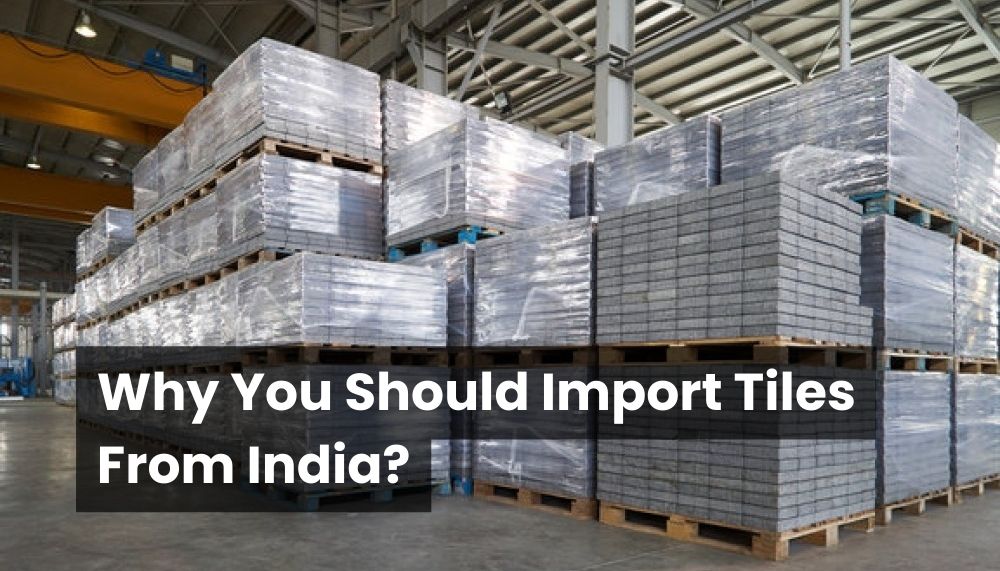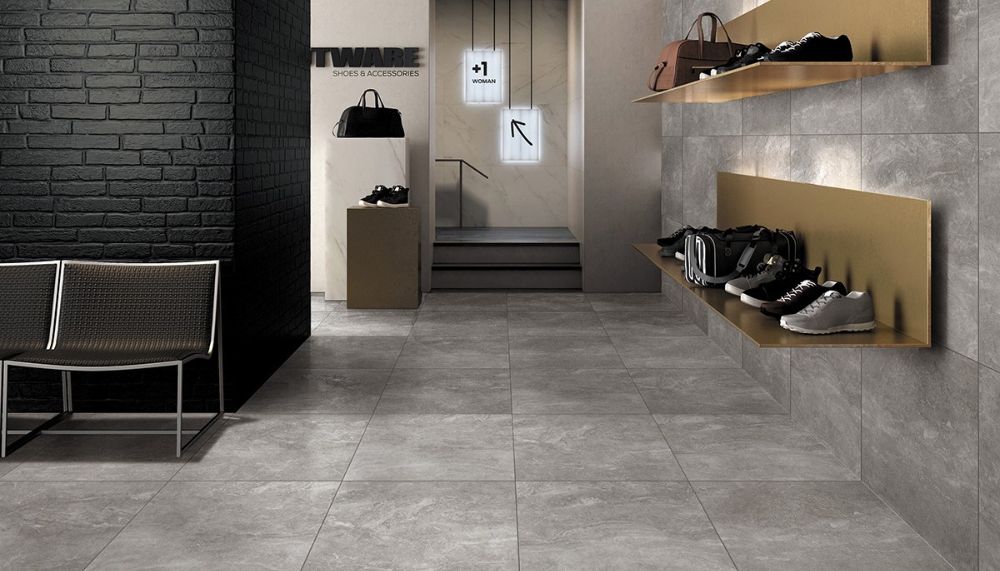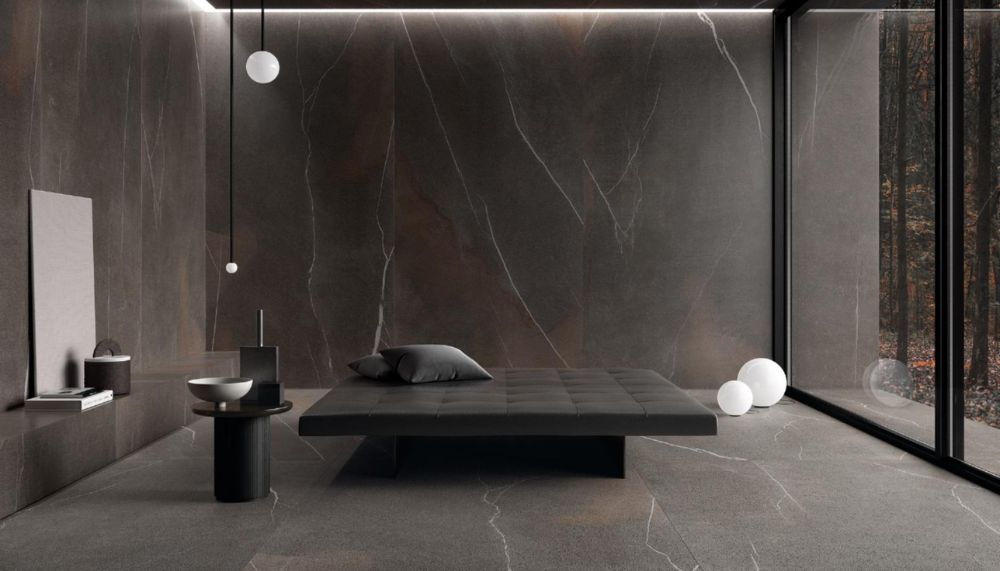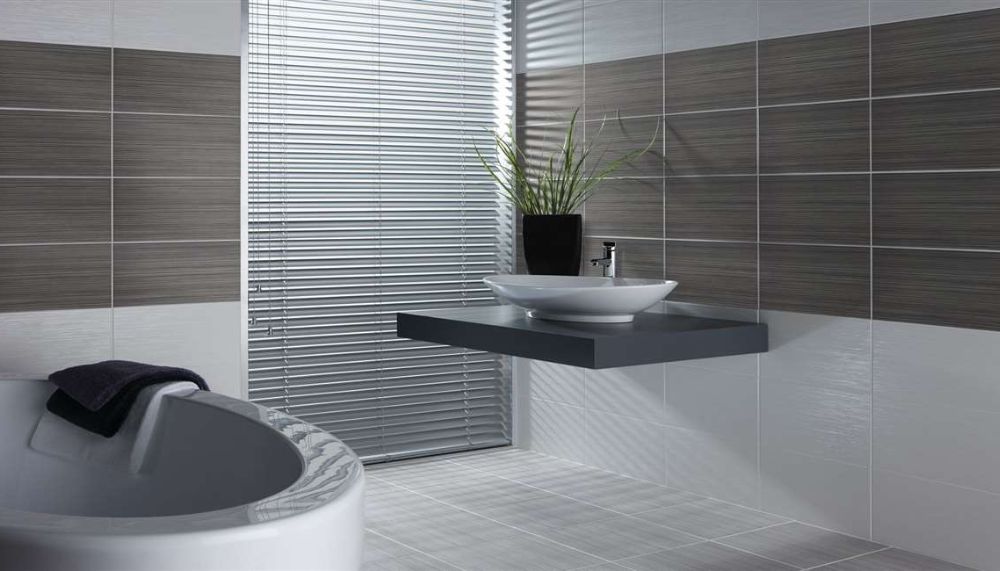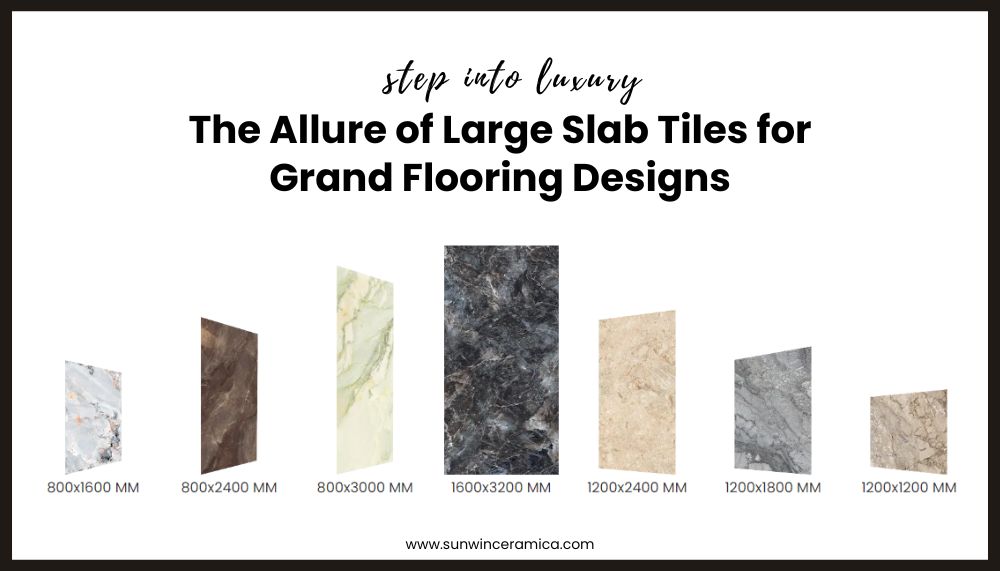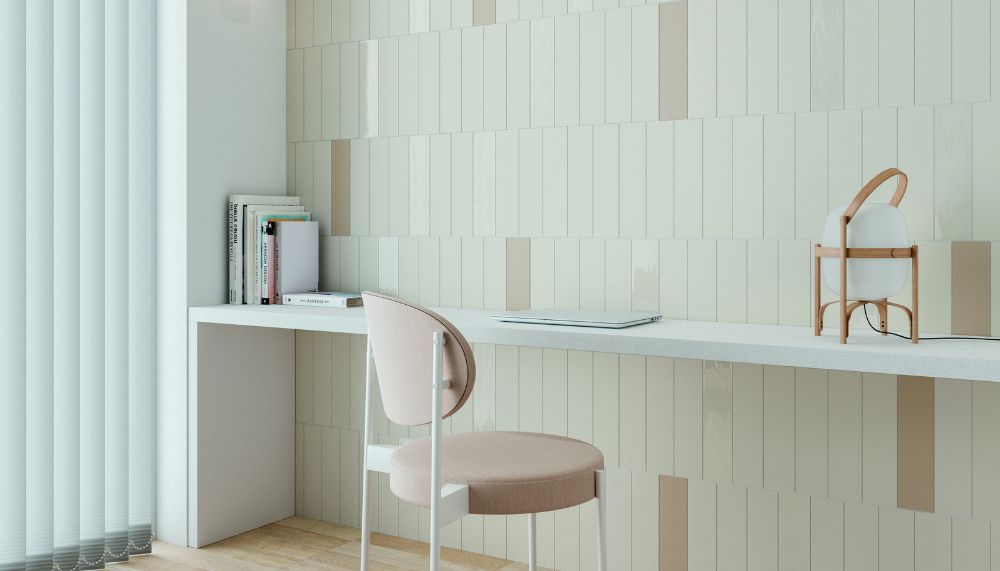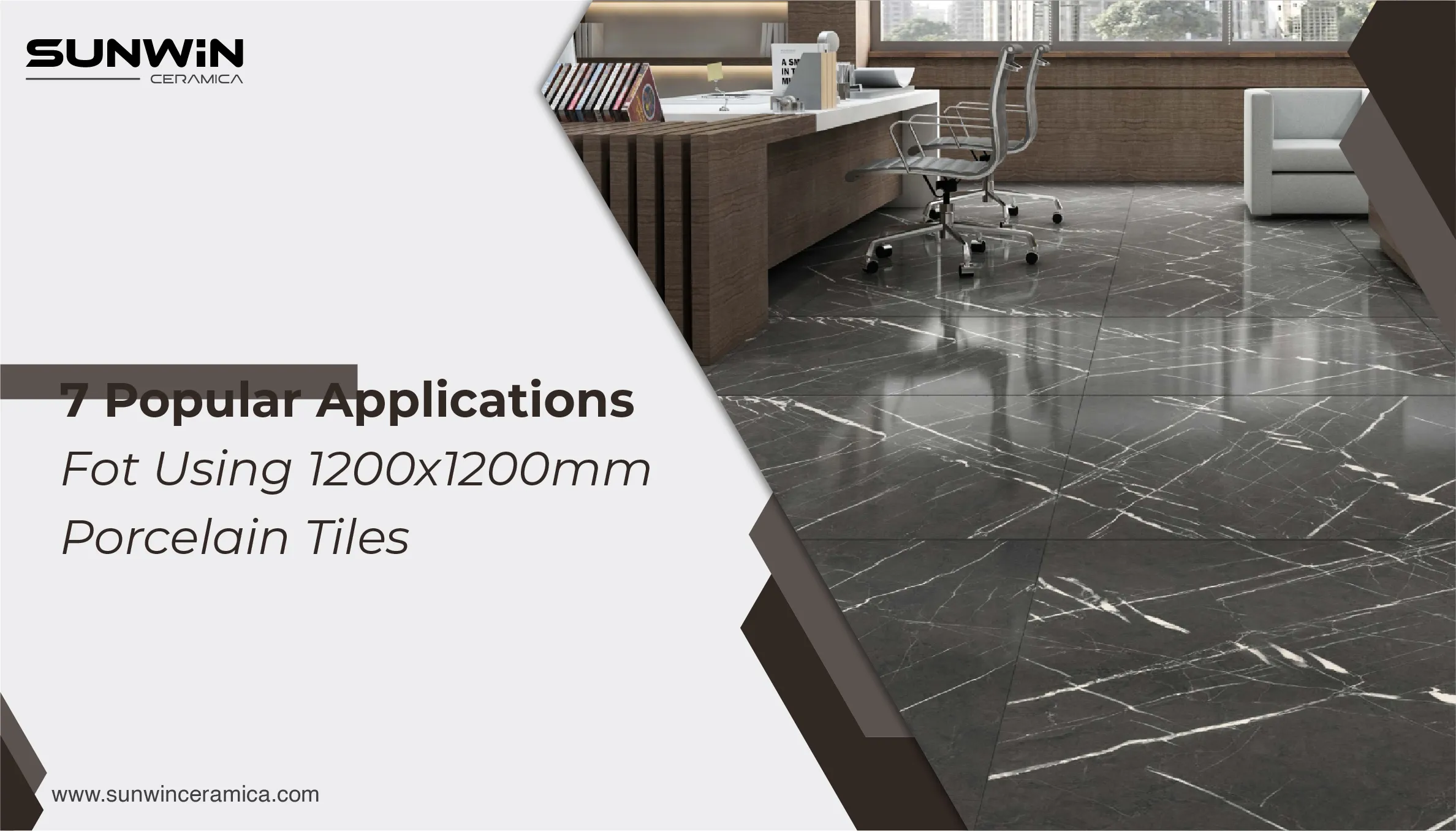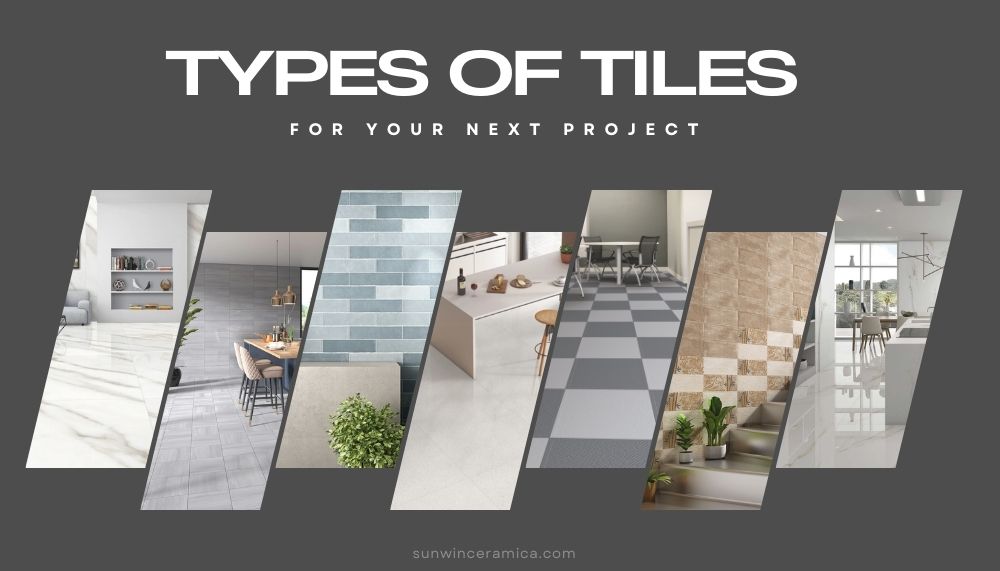
When it comes to renovating a space or building a whole new project from scratch, the selection of the right tiles becomes very important. Different spaces have unique requirements of tiles and without understanding all tile types, you can easily mistake the selection.
For example, bathroom tiles are much different than living room tiles. It should be moisture-resistant and have slip-resistant properties. On the other hand, living room tiles should be vibrant in terms of colors, patterns, and designs for better aesthetics.
Thus, a clear distinction between several tiles is a must to know. To help you with this, we will explain all the types, their key features, and their uses. Let's get started.
Top 9 Types Of Tiles, Their Features and Applications
1. What Is Porcelain Tiles?
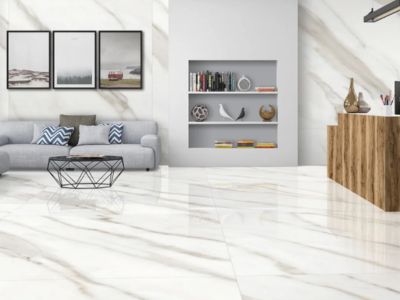
Porcelain tiles are acknowledged for their sturdiness and minimal water absorption (0.05% or less) which make them a great preference for indoor and outdoor decor systems. These tiles are crafted from denser clay and fired at higher temperatures than ceramic tiles, giving them a shiny and extra long-lasting surface.
Key Features:
- Highly resistant against scratches, moisture, and heavy put-on, best for excessive-traffic regions.
- Porcelain tiles are almost impermeable, making them best for commercial spaces, kitchens, and outdoor areas.
- Easy to maintain and upkeep with minimum attempt.
- Available in loads of finishes together with polished, matte, or textured.
Uses: Kitchens, bathrooms, entryways, patios, and high-visitor regions.
Also Read: Ultimate Guide to Understanding Porcelain Tiles
2. What Is Ceramic Tiles?
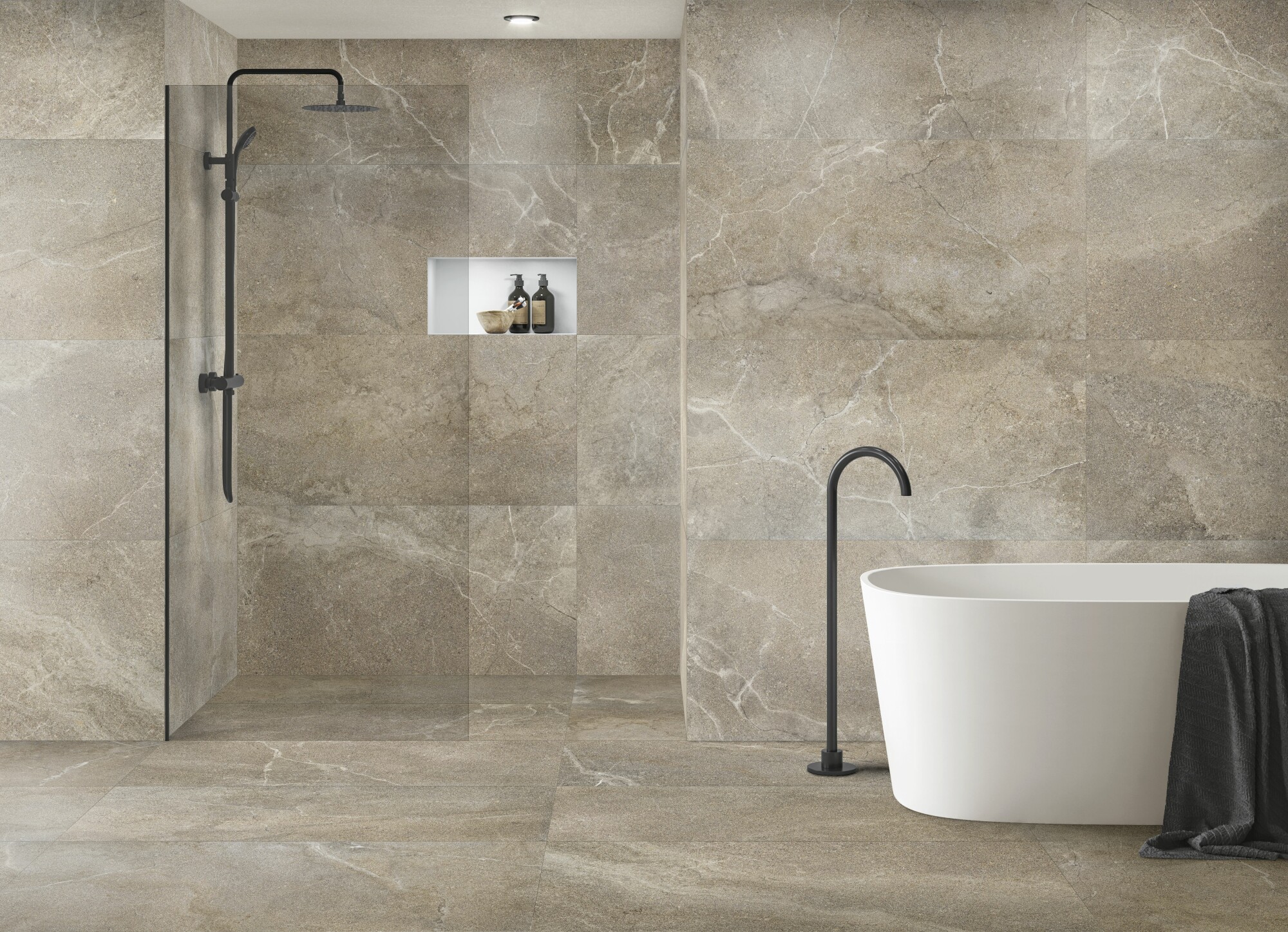
Ceramic tiles are one of the maximum used and versatile forms of tiles available. Made from a mixture of clay, sand, feldspar, talc and water, these tiles are much less dense and have lower water absorption (more than 0.5%) than porcelain tiles. However, It is available in extensive styles of designs, hues, and finishes at affordable prices and is suitable for a range of outdoor and indoor applications.
Key Features:
- Ceramic tiles are normally less costly than porcelain.
- Available in an in-depth range of colors, styles, and sizes.
- Lighter and easier to handle than porcelain, making them a favorite for DIY tasks.
- Suitable for medium to light foot traffic but much less long-lasting than porcelain.
Uses: Shower areas, bathtub surrounds, bathroom countertops, patios, decks,, walkways, and Interior & exterior wall decoration.
Also Read: Exploring the Advantages and Disadvantages of Ceramic Tiles
3. What Is Subway Tiles?
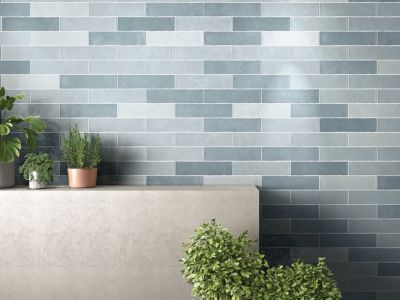
Popular since the early 20th century, Subway tiles are rectangular-sized tiles typically available in 3x6 or 4x8 inches. Originally named after the tiles utilized in New York City subway stations, they’ve come to be a layout staple in both kitchens and toilets.
Nowadays, It is made from porcelain or ceramic material and available in glossy as-well-as matt finish, normally used for creating smooth, undying wall designs. This tile is mainly popular for its easy-to-clean features.
Key Features:
- Their simple, glossy appearance complements various styles, from traditional to modern.
- Typically crafted from ceramic or porcelain, subway tiles are long-lasting and easy to use.
- Available in diverse hues and finishes, making an allowance for creative designs.
Uses: Classic home decor, bathroom & kitchen wall, cafes, restaurants, and hotels.
Also Read: Everything You Need To Know About Subway Tiles
4. What Is Full Body Tiles?
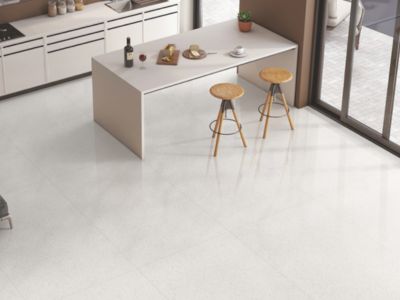
Full body tiles are made from single pieces of clay or porcelain, which is why also known as through-body tiles or homogeneous tiles. It comes with a high thickness, ranging from 8-20 mm. This high thickness makes it higher resistant to impact and breakage.
Full body tiles come with a uniform color and have no risk of glaze chipping off. This makes them best for high-traffic areas, and other areas like backsplashes and even countertops. Mostly, Fullbody tiles are available in designs that mimic natural stone appearance.
Key Features:
- Scratch and wear-resistant, perfect for regions with heavy foot site visitors.
- The regular color throughout the tile affords a continuing look.
- Resistant to stains and smooth to install, making them suitable for industrial areas.
Uses: High-traffic areas, industrial spaces, and outside areas.
Also Read: Comprehensive Guide to Full Body Tiles for Your Home Renovation
5. What Is Parking Tiles?
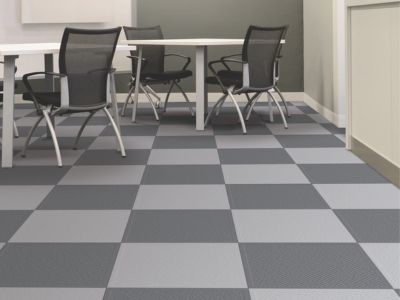
Parking tiles are heavy-duty tiles that come in 15-30 mm thickness and are particularly designed to withstand the weight and strain of automobiles in parking masses or garages. It is made from durable materials like ceramic, concrete, or porcelain making it resistant to high loads or stresses, and comes with a slip-resistant feature.
Key Features:
- Engineered to help heavy hundreds without cracking.
- Specially textured to prevent slipping, even in wet situations.
- Can bear excessive weather situations, from freezing temperatures to scorching warmness.
Uses: Garages, parking plenty, and driveways.
6. What Is Wall Tiles?
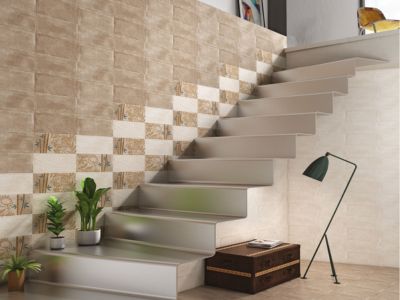
Wall tiles, as the name suggests specifically designed tiles for walls. It is generally thinner and lighter than other types of tiles. They come in numerous materials, such as ceramic, porcelain, and glass. It is used to protect the walls from moisture and enhance the overall look of the space.
These tiles come in designs and colors that resonate with the floor tiles and the latest trend features an interlock and 3d wall tiles.
Key Features:
- Easier to put on the wall than floor tiles.
- Available in quite a few designs, styles, and textures to enhance the appearance of an area.
- Commonly used in regions with excessive moisture, together with bathrooms and kitchens.
Uses: Bathroom walls, kitchen backsplashes, and accent walls.
Also Read: Guide To Choosing The Right Wall Tiles With Latest Trends
7. What Is Slab Tiles?
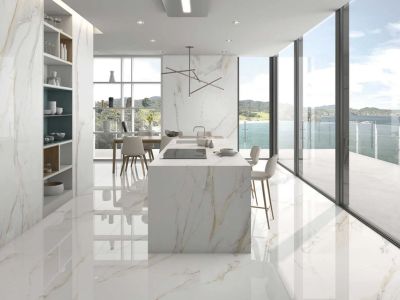
Slab tiles also known as large-format tiles offer a continuing and luxurious appearance to spaces with large sizes such as 800x1600 mm, 1200x2400, 1600x3200 mm, and more. These tiles are normally used for modern flooring or cladding massive wall areas and are acknowledged for their minimum grout strains. The slabs also have a high thickness, commonly between 6 to 20 mm which makes them suitable for advanced applications such as kitchen countertops, dining tables, and vanity tops.
Key Features:
- Minimal grout traces create a sleek, contemporary look.
- Available in large sizes, regularly mimicking natural stones like marble or granite.
- Strong and enormously resistant to stains, scratches, and wear.
Uses: Large floors, countertops, wall cladding, and facades.
Also Read: 8 Reasons to Choose Large Format Slab Tiles
8. What Is Floor Tiles?
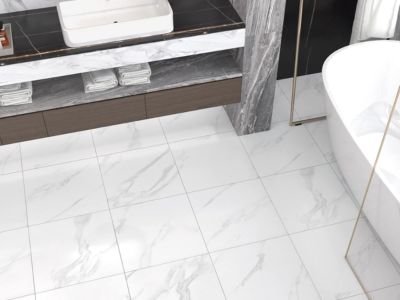
Floor tiles are designed to resist the day-by-day wear and tear of foot site visitors, making them extra long-lasting than wall tiles. They are available in diverse materials like ceramic, porcelain, Vinyl, and natural stone. Floor tiles showcase some must-have features like scratches, moisture, stain and skid resistance, and high durability, available in a range of colors, finishes, patterns, and sizes to make them suitable for any space.
Key Features:
- Made to bear heavy foot site visitors, influences, and spills.
- Many floor tiles offer a textured surface to lessen slipping.
- Available in multiple designs, from wooden-appearance tiles to stone patterns.
Uses: Living rooms, kitchens, bedrooms, and outdoor areas.
9. What Is GVT Tiles?
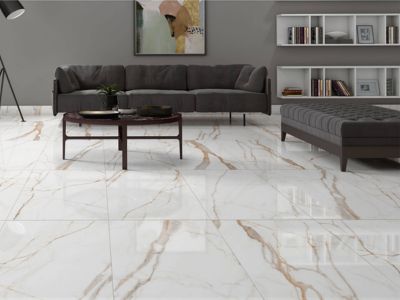
Glazed Vitrified Tiles (GVT) are a form of vitrified tile that is made by a mixture of clay, feldspar, and quartz making it dense and non-porous. It has a layer of glaze on the surface of the tile, making it scratch, stain, and impact-resistant and its designs are printed with the latest inkjet technology which makes its design anti-faded in any condition. These tiles are especially famous in residential and business areas due to their durability and aesthetic appeal.
Key Features:
- Made with the aid of a vitrification process that makes them extremely robust and sturdy.
- Available in several designs, such as wood, stone, and other styles.
- Suitable for areas with high moisture exposure, along with bathrooms and kitchens.
Uses: Residential flooring, industrial areas, and outside cladding.
Also Read: How Are Glazed Vitrified Tiles Made? A Comprehensive Guide
Wrap Up
In summary, selecting the right tiles for any project is crucial to creating a balance between aesthetics and functionality. By choosing the perfect tile type you can not only create visually stellar spaces but also a long-lasting decor that will serve you for generations. Explore the widest collection of tiles with us.
